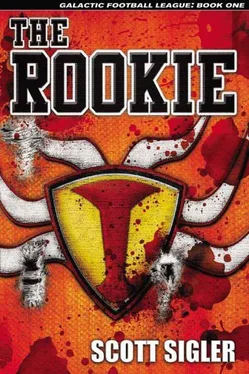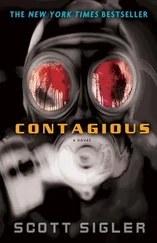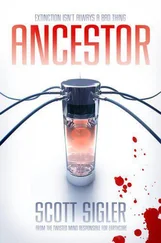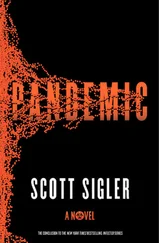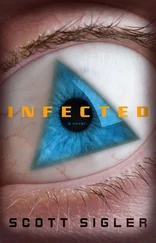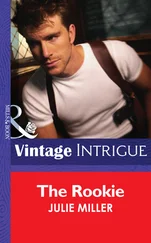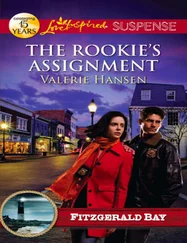Quentin’s jaw dropped. “What the hell are you talking about? I threw a 55-yard touchdown , for High One’s sake!”
“A pass that I did not tell you to throw,” Hokor said as he slapped the desktop with his pedipalps. “I told you to take a knee. And don’t think I’m fooled by your trick of turning off your helmet receiver.”
“Is this some kind of a rookie joke?”
“I do not joke.”
“So how long am I out?”
“One game,” Hokor said. “You will dress to lessen your shame, but you will not see any playing time. It is important that the team sees you as a competent backup to Pine, so we will keep this to ourselves. You are going to learn who is in charge here, Barnes.”
Quentin stared at the diminutive coach. He wanted to come across the desk and punch out that one big eye.
“This is all to protect Pine, isn’t it,” Quentin said. “You know damn well I should be starting.”
“Right now you’re not fit to start a grav-cab, let alone start for a Tier Two team,” Hokor said. “The sooner you see that, the sooner we can start working to make you good enough to play in this league.”
“I looked pretty flippin’ good today.”
“You were playing garbage time against the worst team in the division,” Hokor said. “Hardly an impressive outing. Now leave, I must prepare for next week’s game.”
Quentin stood and stormed out of the office, making sure to accidentally bump his shoulder against one of the holoframes as he left. He heard the heavy thing crash into the floor, and heard Hokor’s angry yell, but ignored both and walked back to the Human dressing room.
Pine was there, dressed in a sharp blue suit that complimented his blue skin. “Hell of a game today,” he said with a wide smile. “And hell of a shot you put on Tweedy. The guy’s left cheek is already black and blue. Where did you learn to do that?”
“In the mines,” Quentin said as he sulked to his locker. “Roundbugs down there. Every kid carries a weighted rope. You learn early on how to snap the rope to kill any roundbugs you see — you don’t learn how to do it right, you die.”
Pine’s face wrinkled in disbelief. “What, are you kidding me? How old were you when they taught you that?”
“Five,” Quentin said. “That’s when you start working in the mines.”
“At five ? Five years old? Working a mine with poisonous… bugs, or whatever? Good God, Quentin, what kind of a place did you grow up in?”
“A chosen place,” called the deep voice of Rick Warburg. “Where only the blessed can live.”
Pine laughed. “Doesn’t sound that blessed to me, champ.”
“High One protects the faithful,” Warburg said as he walked over.
“I see,” Pine said, drawing out the last word. “The faithful. And so therefore if a little child is killed by one of these bugs, then that’s because the child was not faithful. So the child dies, and it’s the child’s fault.”
Warburg nodded.
Pine shook his head. “Nice place you guys come from. Say, Quentin, Yitzhak and I are heading out on the town. There’s a great Chinese place just past the stadium.”
Pine’s audacity amazed Quentin. The guy was pulling every string in the book to keep his starting job, and was two-faced enough to try and be friends.
“I’ve got a place Quentin would be more happy,” Warburg said. “With his own people.”
Pine looked at Warburg, then looked at Quentin, then shrugged and walked away.
“Finish getting dressed,” Warburg said. “I’ve got a surprise for you.”
“YOU’LL LOVE the neighborhood,” Warburg said. “There’s thousands of ex-patriot Nationalites on Ionath. Most of them came during the cleansing.”
Their grav-cab floated along the magnetic track that led through the Human Cultural Area. Grav-cabs abounded in the domed city — you just hopped on, told it where you wanted to go, then enjoyed the ride. On Micovi, only the rich could afford any kind of car, let alone one with a driver. Here in Ionath City, cars were not only available to anyone at any time, they were also free.
The four mile diameter dome created twelve square miles of ground, most of that space taken up by the main towering buildings of downtown Ionath City. The remaining space was home to the “Cultural Areas” of several species: Sklorno, Ki and Human; a fifty-story, high-pressure gas cylinder for the Harrah; aquatic centers for Leekee, Dolphins and Whitok. The Human Cultural Area consisted of only six city blocks, which didn’t leave a lot of room for individual neighborhoods that reflected the thousands of various Human cultures. The Human District, as the residents called it, was a hodge-podge of cultural influences crammed together in a claustrophobically confined space.
“Wait ‘til we eat,” Warburg said. “An old couple owns the place, used to run a restaurant back on Allah. Down-home Nation cooking. They’ve got a habanero falafel biscuit that will put your mouth in punch space.”
Quentin marveled at the area’s diversity. A hotel catering to League of Planets residents right next to a café that advertised food from the Tower Republic, next to a vodka-only liquor store that specialized in brands from across the galaxy. He saw dance clubs, restaurants, grocery stores, shops, all of which had signs written in Standard and hundreds of other languages. Shops and stores and restaurants packed one on top of the other and side-by-side. There were also dozens of places that — despite assorted cultural trappings — were easily identified by brightly lit signs showing stylized logos of liquor and beer, combined with some image of football. Bars, it seemed, looked the same all over in the galaxy.
People of every type walked the streets. Back home, he was used to the skin tones of his countrymen: black, brown, yellowish and pinkish. But here, those tones mingled with others that never set foot on Nation soil: blue, bleach-white, reddish, and even the occasional deep purple skin of an amphibious Human from the Whitok Kingdom. The “mongrel” races, as they’d been called back home. And it wasn’t just Humans. Gaudily dressed Ki businessmen freely walked the streets, as did Quyth Leaders, Quyth Warriors, tiny Sklorno males and floating Harrah.
Amidst the diversity, he suddenly realized that one species was notedly absent. “Where are the Creterakian soldiers?”
“There aren’t any.”
Quentin looked at Warburg. “There aren’t any? But, how is that possible? They rule the universe.”
Warburg shrugged. “They don’t rule here. The Quyth are independent. The bats never conquered them.”
The concept seemed impossible. All his life, he and his people had been ruled by Creterakians. Quentin had never known a time when the omnipresent bats hadn’t controlled everything.
“So, in the war, the Quyth won ?” The Quyth won while the Purist Nation was conquered were the words that went unsaid.
“They can thank Satan for that,” Warburg said. “The Quyth are in league with the Low One. Temporary freedom for an eternity of fire, Quentin, it’s hardly a good deal.”
Music of many differing styles filtered out of windows and open bar doors. Smells of enticing foods combined with the stench of garbage and the ever-present onion scent of Quyth Workers. Quentin had never before experienced such a concentration of sights, sounds and smells.
“Look at this place,” Warburg said, gesturing to the brightly lit signs of three different churches lined up side-by-side. “Look at all the blasphemy that goes on in the galaxy, Quentin. It’s as if a new religion pops up every other day.”
Churches of every type filled tiny buildings, offices and upper-story lofts. He’d never imagined there were so many different religions. On Micovi, you either followed the Purist way or you followed no way at all — practicing other religions in Nation space got you thrown in jail, if you were lucky, or dragged before a tribunal, which usually resulted in jail, public beatings, or being stoned to death.
Читать дальше
